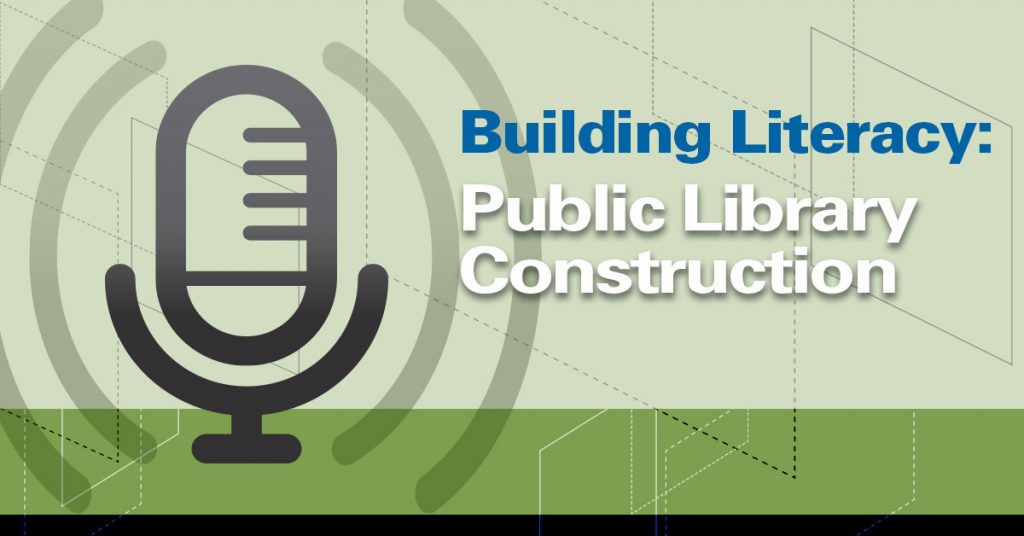
By Andrea Bunker, Library Building Specialist at the MBLC
The MBLC Construction Team recently released two new episodes of the Building Literacy podcast: Construction and Climate Change Legislation: A Conversation with Eric Friedman and Green Communities Grants and Energy Efficiency Incentives: A Conversation with Joanne Bissetta and Catie Snyder. In Spring of 2021, Governor Baker signed into law “An Act Creating a Next Generation Roadmap for Massachusetts Climate Policy” and signed “Executive Order No. 594: Leading By Example: Decarbonizing and Minimizing Environmental Impacts of State Government”, outlining aggressive fossil fuel reduction and increased energy efficiency goals for the Commonwealth at large and the State’s owned assets, respectively. In short, Massachusetts is working toward a net zero or carbon neutral future. With the Intergovernmental Panel on Climate Change’s (IPCC- a body of the United Nations) recently published special report on Global Warming of 1.5 degrees Celsius on August 9, these two episodes could not be more timely and their calls to action more important.
In “Construction and Climate Change Legislation: A Conversation with Eric Friedman”, learn more about the Commonwealth’s new legislation and Executive Order 594 with Eric Friedman, the Director of the Leading by Example Program, which is a division of the Massachusetts Department of Energy Resources. From a higher level perspective, he discusses what this new legislation means for our municipal libraries and how to reduce carbon emissions and plan for a clean energy future.
In Green Communities Grants and Energy Efficiency Incentives: A Conversation with Joanne Bissetta and Catie Snyder, dig a little deeper into the resources, incentives, and grants that are available to the Commonwealth’s municipalities, and, in turn, libraries, to better position local governments in meeting the State’s ambitious energy goals with Joanne Bissetta, the Acting Director of the Green Communities Division, and Catie Snyder, the Deputy Director of the Leading by Example Program, both of whom are affiliated with the Department of Energy Resources. From lighting upgrades, envelope improvements, and HVAC replacement, to solar arrays and EV charging stations, to designated environmental justice communities, there are funding and incentive programs to help municipalities afford current and newly emerging technologies to decarbonize their buildings and vehicle fleets.
Both episodes also feature advice for how to continue the decarbonization conversation within the community focusing on how the library’s physical building and the library’s larger role as an educational institution can further the goals outlined by the Commonwealth. The one takeaway above all others from these conversations is that this work cannot take place in a vacuum. It requires action on behalf of everyone to mitigate the rising of our oceans and the warming of our planet. We hope you find your library’s tangible, feasible next steps within these episodes. As always, if you have any comments or questions about any of the information presented on Building Literacy or ideas for future episodes, please email Andrea Bunker at andrea.bunker@mass.gov.